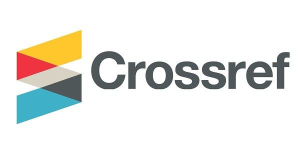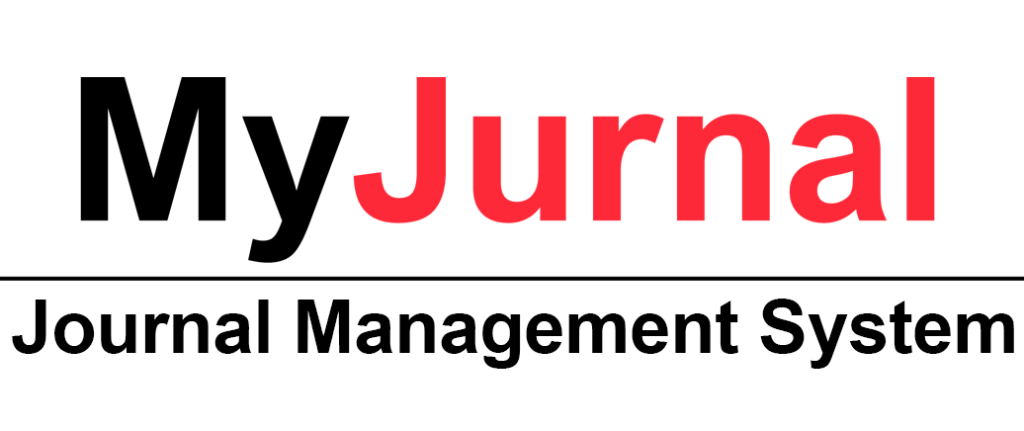Development of Character and Life Skills through Islamic Methods of Teaching Acquired Science Subjects at Islamic International Schools in Malaysia
DOI:
https://doi.org/10.31436/ijes.v6i1.143الملخص
Islamic Schools strive to achieve educational excellence while integrating religious values into their curriculum. Yet, what makes an Islamic school really “Islamic” is not just the content of the curriculum, but also the teaching methods employed by the teachers who are teaching religious and non-religious subjects which affect the whole implementation of the integrated curriculum. The aim of this paper is to investigate the potential benefits of using Quranic and Prophetic Teaching Methods (QPTMs) in non-religious classes on developing the characters of students. Semi-structured one-on-one interviews were conducted with 6 teachers teaching non-religious subjects in Islamic international schools in Malaysia. The interviews were transcribed and the data collected was analyzed by the researchers. The study analysis revealed that teachers of non-religious subjects in Islamic international schools believe that QPTMs contribute to students’ character development by inculcating characteristics and life skills. The findings of the study can draw the attention of integrated curriculum developers to the impact of including the QPTMs in teaching non-religious subjects in the inculcation of Islamic morals and developing the characters of the students.
Key words: Islamic education, moral education, character development, teaching methods, integrated curriculum
المقاييس
المراجع
Al'Alwani, T. J. (2005). Issues in contemporary Islamic Though London: The International Institute of Islamic Thought.
Ali, I. (2009). Character strength as a contributor to students’ academic engagement and psychological well being: A model of the effect of Temperance (Unpublished master's thesis). Islamic International University Malaysia.
Al-Kahledy K., (2010). Education and methods of teaching in Islam in the era of Az-Zarnooji. Retrieved from http://www.qsm.ac.il/ArbLanguage/docs/majalla/3+4/eng=2=kalid.pdf.
Al-Khalediy K., (2011). Education and methods of teaching in Islam in the era of az-zarnooji. Academy Qassami, 4(3), 23-60.
Alotaibi, S. (2014). Study of Islamic Teaching Methods in Saudi Arabia (Doctoral dissertation, Bowling Green State University).
Ampadu, E. (2012). Students’ perceptions of their teachers’ teaching of mathematics: The case of Ghana. International Online Journal of Educational Sciences, 4(2), 351-358.
Creswell, J. W. (2012). Educational research: Planning, conducting, and evaluating quantitative and qualitative research. Boston: Pearson.
Dictionary (2016). In. Dictionary.com. Retrieved from http://www.dictionary.com/browse/inculcation
Douglass, S. L., & Shaikh, M. A. (2004). Defining Islamic Education: Differentiation and Applications. Current Issues in Comparative Education, 7(1), 5-18.
Education Act 1996, 2006 The Commissioner of Law Revision, Malaysia.
Examinations, C. I. (2016). Latest endorsed textbooks for Cambridge qualifications. Retrieved December 13, 2016, from http://www.cie.org.uk/news/news-details/view/latest-endorsed-textbooks-for-cambridge-qualifications-sep13/.
Guarte, J. M., & Barrios, E. B. (2006). Estimation under purposive sampling. Communications in Statistics—Simulation and Computation®, 35(2), 277-284.
Halabi, Y. (2015). Inculcating Islamic values in teaching mathematics from teachers and pupils’ perspectives: A case study (Master's thesis, Islamic International University Malaysia).
Hamad, S. (2004). Assalib Tadrees Altrbah Alislamiah Alshaaiah Altee Uastakhdmha Moalmy Altrbaih Alaslamiah Fi Almarhalah Alasahsia Alilaafi Gaza Wa Mbarrat Istkhdamaha [The methodology of teaching Islamic education which is used by the teachers of Islamic education in the preparatory stage in Gaza-governorates], Islamic university magazine(Islamic studies series) volume 12- second Issue, P.503-52 available at http://www2.iugaza.edu.ps/ar/periodical/articles/volume%2012-2%20Issue%202%20-Human%20-%2016.pdf
Hashim, N. (n.d.). Issues in values-based education in Malaysia.
Holori, M. F. (2013). Teachers' attitude and approaches in the inculcation of Islamic values in teaching: a study of International Islamic School teachers (Unpublished master's thesis). International Islamic University Malaysia.
Kasim, A. Y. &Tamuri, A. H. (2010). Pengetahuanpedagogikalkandungan (PPK) pengajaranakidah: Kajiankes guru cemerlangpendidikan Islam. JIAE: Journal of Islamic and Arabic Education, 2(2), 13-30.
Kuh, G. D., &Umbach, P. D. (2004). College and character: Insights from the national survey of student engagement. New Directions for Institutional Research, 2004(122), 37-54.
Langgulung, H. (2000). Islamic education and human resources development in Muslim countries. Muslim Education Quarterly, 18(1), 65-79.
Liman, M. A., &Salleh, M. J. (2013). Sociological and mathematics educational values: An intersection of need for effective mathematics instructional contents delivery. International Journal of Humanities and Social Science, 3(2), 192-203.
Lubis, M. A., Mustapha, R., and Lampoh, A. A. (2009). Integrated islamic education in Brunei Darussalam: philosophical issues and challenges. JIAE: Journal of Islamic and Arabic Education, 1(2), 51-60.
Lubis, S. A. (2012). Islamic education toward the era of social change: effort in enhancing the quality. Jurnal Al-TamaddunBil, 7(1), 107-108.
Merah, S., &Tahraoui, R. (2014). Integrated curriculum success and challenges: a review of the experience of the International Islamic School Malaysia (IISM).
Noormohammed, H. A. (2013). Methods used by Islamic education teachers to inculcate moral values in Islamic studies: a case study at Lumumba Secondary School in Zanzibar, Tanzania (Unpublished master's thesis). International Islamic University Malaysia.
Omar, F. H. (2016). Influence Of Dualism On Implementation Of Islamic Integrated Curriculum In Muslim Pre-Schools In Nairobi County (Master dissertation, University Of Nairobi).
Omar, F. H. (2016). Influence Of Dualism On Implementation Of Islamic Integrated Curriculum In Muslim Pre-Schools In Nairobi County (Master dissertation, University Of Nairobi).
Rayan, S. (2012). Islamic philosophy of education. International Journal of Humanities and Social Science, 2(19), 150.
Razia, B. (2016). Life Skill Education: A Missing Component in Teacher Education Programmes in India. Indian Journal of Applied Research, 6(5).
Rizi, C. E., Najafipour, M., and Jafari, E. M. (2013). The effect of the active teaching method on the academic achievement in the religious concepts. Procedia - Social and Behavioral Sciences, 83, 204–207. doi:10.1016/j.sbspro.2013.06.040
Rughubar-Reddy, S. (2014). Researching Values in Mathematical Literacy: Trials and Impediments. Mediterranean Journal of Social Sciences, 5(23), 1413.
Rustham, N., & Arifin Mamat, A. A. R. (2012). Teaching Methodologies in a Weekend Madrasah: A Study at Jamiyah Education Centre, Singapore. International Journal of Arts and Commerce (IJAC), 1(2), 148-167.
Sheikh, A. S. (2013). Islamic education in kenya a case study of islamic integrated schools in garissa county (Doctoral dissertation, Department of Philosophy and Religious Studies, University of Nairobi).
Tauhidi, D. (2001). The Tarbiyah project: an overview. Retrieved, 7, 2007.
Yasin, F., Firdaus, R., & Jani, M. (2013). Islamic education: the philosophy, aim, and main features.
التنزيلات
منشور
كيفية الاقتباس
إصدار
القسم
الرخصة
The Journal will own copyright to all published works and have the right of first publication, both in print and online, unless other arrangements are made with the Editors in advance. It is the author`s responsibility to ensure that where copyright materials are included within an article the permission of the copyright holder has been obtained beforehand.




















